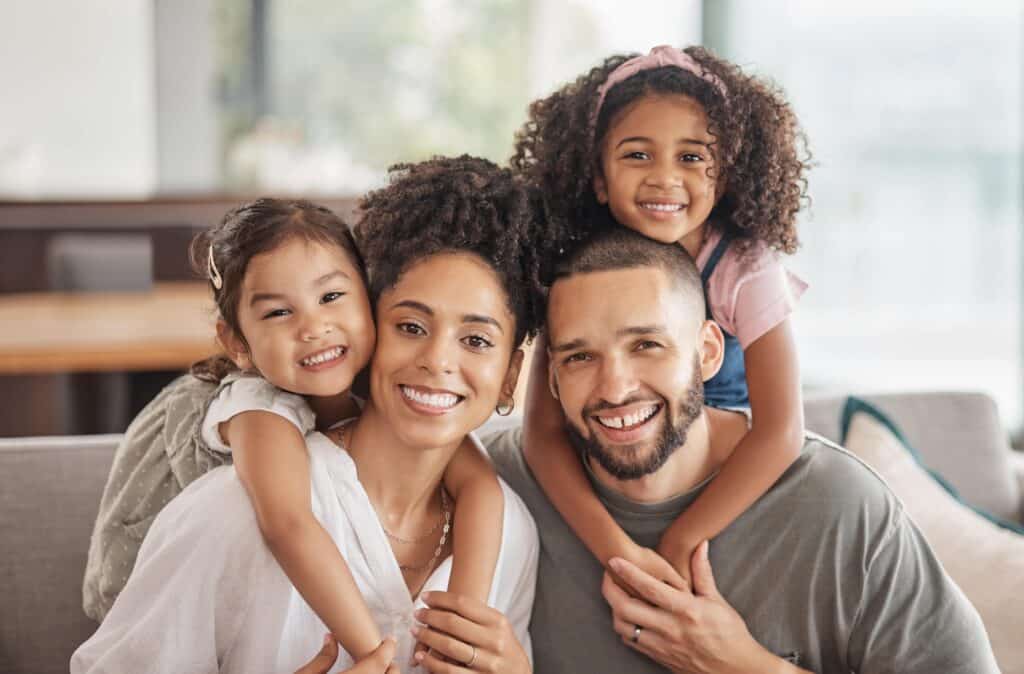32 Addiction & Mental Health Resources For BIPOC Parents
- Home
- Blog
- Addiction Treatment
- 32 Addiction & Mental Health Resources For BIPOC Parents
Addiction and mental health issues are significant challenges faced by BIPOC parents and their children in America today. These challenges stem from a combination of systemic racism and discrimination, as well as a lack of access to culturally appropriate and effective addiction and mental health services.
One of the major challenges faced by BIPOC parents is the lack of access to addiction and mental health services that are culturally sensitive and appropriate. Studies have shown that BIPOC individuals are less likely to seek help for addiction and mental health issues, in part because they may not trust or feel comfortable with mainstream services that are not culturally sensitive or tailored to their specific needs. Additionally, BIPOC individuals are disproportionately represented in low-income households and are more likely to live in poverty, which can make it difficult to afford addiction and mental health services.
Another challenge faced by BIPOC parents is the ongoing effects of historical trauma and discrimination. Many BIPOC families have been affected by forced displacement, slavery, and genocide, which can lead to intergenerational trauma and mental health issues. This trauma can also affect the relationships between BIPOC parents and their children and make it more difficult to provide a stable and nurturing home environment.
Additionally, BIPOC parents and their children often have to contend with racial bias and discrimination in their daily lives. This can take many forms, including microaggressions, discrimination in the workplace, and racial profiling by law enforcement. These experiences can lead to feelings of anger, frustration, and hopelessness, which can make it difficult for BIPOC parents to provide a positive and supportive environment for their children.
Furthermore, BIPOC individuals are disproportionately represented in the criminal justice system, which can lead to negative consequences for their mental health and well-being. For example, BIPOC individuals are more likely to be incarcerated and to receive harsher sentences, which can lead to separation from their families and a lack of access to addiction and mental health services.
All of these challenges can lead to a higher likelihood of addiction and mental health issues in BIPOC communities. Despite these challenges, BIPOC parents continue to work tirelessly to provide a better life for their children. They often rely on community support networks and resources, such as cultural centers and community organizations, to help navigate these challenges. Many BIPOC parents also prioritize instilling a strong sense of cultural identity and pride in their children, which can provide a sense of resilience and empowerment.
To address these challenges, it’s important for society as a whole to recognize and address these challenges, in order to create a more equitable and just society for all. This includes providing culturally appropriate and effective addiction and mental health services, as well as addressing the root causes of addiction and mental health issues such as racism and discrimination.
Need immediate help? We are among the top-rated drug rehabs in Louisville, KY. Additionally, we have a 5/5 star rated rehab center in Lexington, KY. Contact us 24/7. Or read more about our intensive outpatient program and partial hospitalization program.

Addiction Recovery Resources for BIPOC Parents
- FindTreatment.gov: This website is provided by SAMHSA and can help someone find affordable addiction treatment options near them.
- Alcoholics Anonymous: This is a 12-Step recovery fellowship that provides help and solution to anyone struggling with alcoholism.
- Cocaine Anonymous: This is AA’s sibling recovery fellowship that is dedicated to helping anyone with a cocaine or drug problem find recovery.
- Heroin Anonymous: Another of AA’s sibling fellowships, this one is open to anyone with a heroin or opioid problem. This includes prescription opioids.
- Recovery Dharma BIPOC: This is a 12-step recovery fellowship that is inspired by Buddhist teaching. They have a BIPOC-only meeting guide.
- Celebrate Recovery: This is a Christian-based recovery fellowship that holds meetings all across America.
- SMART Recovery: This is another recovery fellowship that is unaffiliated with AA, CA, or HA. Their name is an acronym for Self Management A Recovery Training. They hold meetings all across the country.
- LiveAnotherDay.org: Comprehensive directory of the 2500+ top-rated rehab facilities in the United States. Also features numerous resources for the BIPOC community.
- The Steve Fund: The Steve Fund is a nationwide organization that works to support young BIPOC people in all of the struggles they may face in today’s America. Their resource section has dozens of helpful addiction recovery and mental health support resources for young BIPOC.
- They also provide a crisis text line that can be reached by texting STEVE to 741-741.
- Wellbriety Movement: This is a Native American/First Nations sobriety movement that has meetings all across the US and Canada.
- FindLuxuryRehabs.com: Database of the best luxury rehabs in the country. Complete with program information and reviews.
- Native American Rehabilitation Association (NARA): This is a group of Native American treatment centers and addiction recovery professionals who provide support, information, and services to Native Americans struggling with addiction.
- Concerned Black Men of America: This is an advocacy and community service organization that acts as a focal point for Black Men to improve their communities by acting as role models and serving those that may be struggling.
Mental Health Resources for BIPOC Parents
- 988 Suicide & Crisis Lifeline: This is a 24/7/365 crisis hotline that can be reached by dialing 988.
- National Runaway Safeline: Call 1-800-786-2929 anytime 24/7 to be connected with a compassionate advocate that can listen and point you in the direction of help.
- StrongHearts Native Helpline: Call 1-844-762-8483 anytime, 24/7 to be connected with mental health support services tailored to American Indians and First Nations People.
- Your Life, Your Voice: Call 1-800-448-3000 anytime 24/7 to be connected with a counselor now. They also provide a text option by texting VOICE to 20121.
- The Trevor Project: This is a national advocacy and support organization that aims to help young BIPOC that may be facing adversity with regard to their sexuality. They provide dozens of resources as well as access to counselors.
- Find Recovery Now – Mental health resource with culturally competent resources for people of color.
- Aakoma Project: This is a national non-profit organization that works to provide support to young BIPOC and can help connect them with culturally-competent therapists or counselors.
- Black Emotional and Mental Health Collective: Known as BEAM, this is an advocacy organization that provides dozens of resources and can help connect someone with culturally competent mental health services.
- Therapy for Black Men: Their tagline of “strength still needs support” is indicative of their purpose. Helping Black Men who may be struggling with mental health issues is the sole focus of this organization.
- Therapy for Black Girls: This website provides a therapist locator tool that can help Black women find a culturally-competent therapist anywhere in America.
- Melanin and Mental Health: This is a BIPOC-specific therapy assistance website that can connect BIPOC with culturally-sensitive therapists anywhere in America.
- Black Mental Health Alliance: This is a mental health support organization that provides a wealth of resources for BIPOC to find competent therapists near them.
- Black Men Heal: This is a BIPOC mental health advocacy organization that provides resources and programs for BIPOC men of all ages.
- Sista Afya: This is a community mental wellness organization that is for Black Women anywhere in the world.
Social Media, Videos, Podcasts, and Articles for BIPOC Parents
- National Black Child Development Institute: This organization is committed to the success and support of Black children all across America.
- Brown Girl Therapy: This is a community organization that is intended for children of immigrants. They work to promote mental health advocacy and healing through their Instagram account.
- Dear Black Women: This organization is by Black Women, for Black Women. They provide support and community for many of the issues faced by today’s Black Women in America.
- Ourselves Black: This is a Black mental wellness and storytelling organization that shares stories of Black Americans who have struggled, and overcome mental health issues as well as injustice.
- Sad Girls Club: This is a non-profit organization that works to provide a community for BIPOC women and girls who may be struggling with mental health issues. They also host the Sad Girls Club Podcast.
- The Okra Project: This is a mutual aid collective that provides support and resources to BIPOC LGBTQ people who may be struggling with mental health issues.
- Pretty Good – Your Kids Aren’t Too Young to Talk About Race: This article provides a wealth of resources to help BIPOC parents begin talking to their children about race in a healthy way.
- NPR – Talking Race With Young Children: This is a 20-minute podcast that details the benefits, risks, and methods for discussing race with children in a constructive and safe manner.
Take The Next Step
-
Phone
502-586-4554 -
Address
827 E Market Street Louisville KY 40206
Copyright ©2023 All rights reserved by Louisville Addiction Center

